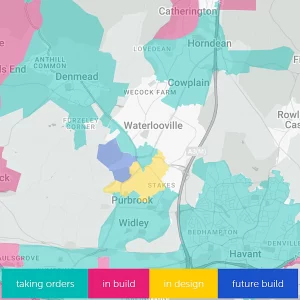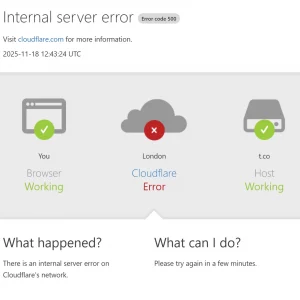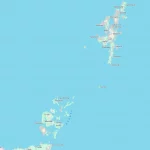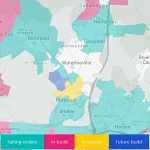Sponsored Links
Ofcom UK Begins Drafting Broadband ISP Copyright Infringement Code
Posted: 13th Apr, 2010 By: MarkJ
 Regulator Ofcom has today set out its approach to drawing up a new code of practice for handling claims of Copyright Infringement (illegal P2P file sharing) by Rights Holders against customers of UK broadband ISPs. The move follows last week's passing of the controversial Digital Economy Act
Regulator Ofcom has today set out its approach to drawing up a new code of practice for handling claims of Copyright Infringement (illegal P2P file sharing) by Rights Holders against customers of UK broadband ISPs. The move follows last week's passing of the controversial Digital Economy Act The Act also makes it difficult for anybody to setup an open / public shared Wi-Fi wireless internet network and also leaves the door open for legitimate websites to be blocked. Even content hosted by Google's search engine or YouTube could be at risk.
Ofcom's Initial Obligations
Qualifying ISPs will be required to notify [WARNING LETTERS] subscribers of allegations made by copyright owners that their account has been used for unlawful file sharing and to maintain a list of the subscribers who receive multiple unchallenged notifications.
Subscribers must be provided with sufficient information in any notification such that they can challenge the basis under which the notification has been sent. They must also have access to a robust and effective appeals mechanism.
Subscribers on those lists may have their details passed to relevant copyright owners who may pursue legal action, though any such transfer of personal information will require a Court Order. Any processing of subscriber data must be in compliance with the relevant data protection laws.
These measures will be introduced and governed through a code of practice, which will be approved, implemented and enforced by Ofcom. Ofcom will also establish mechanisms for the resolution of disputes between parties to the code.
Qualifying ISPs will be required to notify [WARNING LETTERS] subscribers of allegations made by copyright owners that their account has been used for unlawful file sharing and to maintain a list of the subscribers who receive multiple unchallenged notifications.
Subscribers must be provided with sufficient information in any notification such that they can challenge the basis under which the notification has been sent. They must also have access to a robust and effective appeals mechanism.
Subscribers on those lists may have their details passed to relevant copyright owners who may pursue legal action, though any such transfer of personal information will require a Court Order. Any processing of subscriber data must be in compliance with the relevant data protection laws.
These measures will be introduced and governed through a code of practice, which will be approved, implemented and enforced by Ofcom. Ofcom will also establish mechanisms for the resolution of disputes between parties to the code.
Ofcom now has just under 8 months to complete its Copyright Infringement Code of Practice (we're calling it a CICoP). The regulator will also need to provide quarterly reports to the Secretary of State (e.g. Peter Mandelson), estimating levels of unlawful file sharing and assessing the extent of legal action by copyright owners.
Ofcom must also establish a methodology for estimating levels of unlawful file sharing. They are required to establish a baseline estimate for the day on which the initial obligations code is implemented. It will be against this estimate that the impact of the measures will be assessed. Failure to reduce copyright infringement by 75% would leave to the imposition of technical measures, such as reduced service speeds, website blocking and or disconnection for repeat offenders.
The government and Ofcom have previously said that they would not require UK ISPs to snoop on their customers private online activity. Contradicting this, it does not appear to rule out the adoption of Detica's new CView Deep Packet Inspect (DPI) technology, which is currently being trialled by Cable ISP Virgin Media UK (here).
Interestingly Ofcom claims that it will also report annually on a broader range of factors, including consumer education campaigns and the availability of "attractive" lawful alternative services. That should be interesting to see.
To comply with the timetable in the Act Ofcom will need to publish a draft code for consultation no later than May 2010, publish a Statement no later than the end of September 2010 and, at the same time, submit a draft statutory instrument embodying the approved code to the European Commission for consideration (EU consideration takes 3 months).
We strongly encourage UK ISPs to take part and become active in this process so that they can help Ofcom develop an effective appeals process.
Search ISP News
Search ISP Listings
Search ISP Reviews
Latest UK ISP News








Cheap BIG ISPs for 100Mbps+
150,000+ Customers | View More ISPs
Cheapest ISPs for 100Mbps+
Modest Availability | View More ISPs
Latest UK ISP News
Helpful ISP Guides and Tips
Sponsored Links
The Top 15 Category Tags
- FTTP (6798)
- BT (3880)
- Politics (3072)
- Business (2766)
- Openreach (2663)
- Building Digital UK (2511)
- Mobile Broadband (2474)
- FTTC (2142)
- Statistics (2126)
- 4G (2091)
- Virgin Media (2023)
- Ofcom Regulation (1779)
- 5G (1731)
- Fibre Optic (1604)
- Wireless Internet (1595)
Sponsored
Copyright © 1999 to Present - ISPreview.co.uk - All Rights Reserved - Terms , Privacy and Cookie Policy , Links , Website Rules































